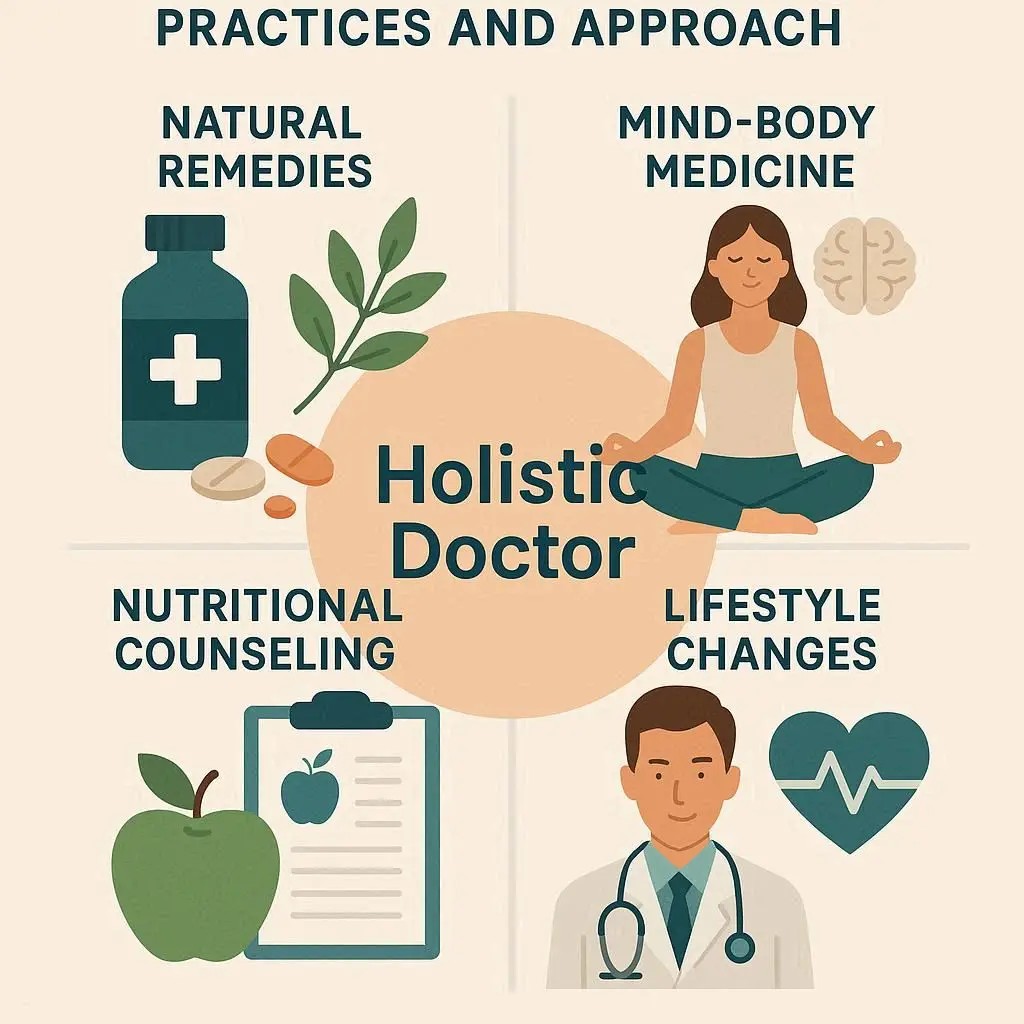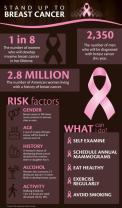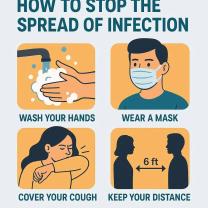What does a holistic doctor do?
What a Holistic Doctor Does: Practices and Approach
Holistic doctors take a comprehensive approach to healthcare, focusing on the whole person—body, mind, and spirit—rather than just treating symptoms. Their goal is to promote overall wellness and prevent disease through personalized care and natural therapies.
What is a Holistic Doctor?
A holistic doctor is a licensed medical professional who integrates conventional medicine with alternative and complementary therapies. They consider physical health, emotional well-being, lifestyle, and environmental factors when diagnosing and treating patients.
Common Practices of a Holistic Doctor
Comprehensive Assessments
Holistic doctors evaluate a patient’s medical history, lifestyle habits, diet, stress levels, and emotional health to develop a complete understanding of their overall well-being.
Integrative Treatment Plans
Treatment may combine conventional medicine (like prescriptions or procedures) with natural therapies, such as:
Nutrition counseling and dietary supplements
Herbal medicine and homeopathy
Acupuncture or acupressure
Mind-body techniques like meditation, yoga, or stress management
Preventive Care and Lifestyle Guidance
Holistic doctors emphasize prevention through healthy habits, including exercise, balanced nutrition, sleep hygiene, and stress reduction strategies.
Patient-Centered Approach
They focus on individualized care, actively involving patients in decision-making and encouraging self-healing practices.
Collaboration with Other Practitioners
Holistic doctors may work with nutritionists, therapists, chiropractors, or other complementary health practitioners to provide well-rounded care.
Benefits of Seeing a Holistic Doctor
Addresses the root cause of health issues, not just symptoms.
Promotes overall wellness and quality of life.
Supports mental, emotional, and spiritual health alongside physical health.
Offers personalized care tailored to each patient’s unique needs.
Final Thoughts
A holistic doctor bridges the gap between conventional medicine and alternative therapies, providing a whole-person approach to health. By focusing on prevention, lifestyle, and integrative treatments, holistic doctors aim to empower patients to achieve long-term wellness and balance in their lives.
Holistic medicine focuses on treating the "whole person" – encompassing the body, mind, spirit, and emotions – rather than just isolated symptoms or diseases.
Here's an overview of what a holistic doctor does, their approaches, how they differ from conventional medicine, the benefits of holistic care, and how to find a qualified practitioner:
What a Holistic Doctor Does
A holistic doctor views health as a dynamic balance of an individual's physical, mental, emotional, and spiritual states.
Types of professionals who might practice a holistic approach include:
Integrative Medical Doctors (MD/DO): These are traditionally licensed medical doctors who combine conventional medical training with holistic techniques.
They can offer a broad range of services, including preventive care, chronic disease management, and referrals to specialists, while incorporating holistic elements. Doctors of Naturopathic Medicine (ND): Naturopathic doctors attend accredited naturopathic medical schools and focus on natural therapies, prevention, and stimulating the body's self-healing abilities.
Their scope of practice can vary by state licensure. Doctors of Chiropractic Medicine (DC): Chiropractors focus on the musculoskeletal system, using hands-on manipulation to reduce pain and correct body alignment.
They often incorporate nutrition and lifestyle advice. Acupuncturists (LAc) and Chinese Herbalists: Practitioners of Traditional Chinese Medicine (TCM) use methods like acupuncture (inserting fine needles into specific points) and herbal remedies to rebalance the body's energy (qi).
A holistic doctor's approach is typically:
Patient-Centered: They build a strong doctor-patient relationship, encouraging open communication and respecting the patient's preferences.
Preventative: A significant emphasis is placed on preventing disease through lifestyle modifications rather than just treating existing conditions.
Root Cause Focused: They strive to identify the underlying causes of illness rather than just suppressing symptoms.
Empowering: They educate patients on self-care and equip them with tools to cope with stress, make healthy choices, and actively participate in their healing journey.
Common Treatments and Approaches Used
Holistic doctors employ a diverse array of therapies, often integrating them to create personalized treatment plans.
Lifestyle Modifications: Comprehensive advice on diet, exercise, sleep habits, and stress management techniques (e.g., meditation, mindfulness, yoga).
Nutritional Counseling: Guidance on eating well to support overall health, addressing nutritional deficiencies, and recommending dietary supplements or herbal medicine.
Mind-Body Therapies: Practices that acknowledge the connection between mental and physical health, such as meditation, biofeedback, hypnosis, guided imagery, and breathing exercises.
Traditional Alternative Medicine: Therapies like acupuncture, homeopathy (though with little scientific evidence for efficacy), and Traditional Chinese Medicine (TCM).
Body-Based Practices: Chiropractic adjustments, osteopathic manipulative treatment, and various forms of massage therapy or body movement therapies like Tai Chi.
Herbal Medicine/Botanical Medicine: Utilizing plant-based remedies to address symptoms and support the body's healing processes.
Detoxification: Practitioner-guided programs aimed at removing toxins from the body.
Psychotherapy and Counseling: Addressing emotional and psychological well-being.
Differences Between Holistic and Conventional Medicine
The core differences between holistic and conventional (or traditional Western) medicine lie in their philosophy, focus, and methodology:
| Feature | Conventional Medicine | Holistic Medicine |
| Focus | Primarily on diagnosing and treating specific diseases and symptoms. | Focuses on the "whole person" (body, mind, spirit, emotions) to identify and treat root causes. |
| Approach | Often standardized protocols; reactive (treats illness as it arises). | Personalized treatment plans; proactive and preventative; emphasizes lifestyle changes. |
| Methods | Relies heavily on pharmaceuticals, surgery, and other medical procedures. | Combines conventional medicine with complementary and alternative therapies; prioritizes natural, less invasive approaches. |
| View of Health | Tends to treat the body as separate systems. | Recognizes the interconnectedness of all aspects of a person's health. |
| Patient Role | Patient typically receives treatment. | Patient is empowered and actively involved in their healthcare journey. |
| Goal | Symptom relief, disease management, curing illness. | Achieving optimal health and wellness; long-term well-being and prevention. |
It's important to note that "integrative medicine" often bridges this gap, blending evidence-based conventional treatments with complementary therapies in a coordinated approach.
Benefits of Holistic Healthcare
Choosing a holistic approach to healthcare can offer several benefits:
Addresses Root Causes: By looking beyond symptoms, holistic care aims to identify and resolve the underlying reasons for illness, potentially leading to more sustainable health improvements.
Improved Overall Well-being: By considering all aspects of a person, holistic care can lead to enhanced physical health (stronger immune system, better pain management, increased energy), improved mental health (reduced anxiety, depression, stress), and a greater sense of purpose and balance.
Empowers Patients: Patients are educated and encouraged to take an active role in their health, fostering self-care habits and greater control over their well-being.
Preventive Focus: The emphasis on lifestyle changes and proactive measures can help prevent chronic diseases before they develop, potentially reducing the need for extensive medical interventions later.
Reduced Reliance on Pharmaceuticals: Holistic approaches often prioritize natural remedies and lifestyle changes, which may lead to a reduced need for or dependence on pharmaceutical medications, minimizing potential side effects.
Personalized Care: Treatment plans are customized to the individual's unique health profile, lifestyle, and preferences, rather than a one-size-fits-all approach.
Sustainable Health Practices: Holistic methods encourage long-term lifestyle changes that can be maintained for lasting health benefits.
How to Find a Qualified Holistic Doctor
Finding a qualified holistic doctor requires careful research to ensure they are reputable and properly credentialed.
Understand Credentials:
MD/DO with Integrative/Functional Medicine Training: Look for medical doctors (MDs) or Doctors of Osteopathic Medicine (DOs) who have additional certifications or training in integrative medicine, functional medicine, or holistic medicine.
These practitioners combine conventional medical knowledge with holistic approaches. Naturopathic Doctors (ND): If considering an ND, verify that they graduated from an accredited naturopathic medical school (accredited by the Council on Naturopathic Medical Education, CNME) and are licensed in your state.
The scope of practice for NDs varies significantly by state. Other Practitioners: For specific therapies like acupuncture or chiropractic, ensure the practitioner is licensed and board-certified in their respective fields.
Utilize Professional Associations and Directories:
American Holistic Health Association (AHHA): Offers an online provider search for holistic practitioners.
The Institute for Functional Medicine (IFM): Provides a "Find a Practitioner" tool for IFM-trained functional medicine clinicians (who apply a holistic, root-cause approach).
American Association of Naturopathic Physicians (AANP): Has a "Find a Doctor" directory for licensed naturopathic doctors.
American Academy of Medical Acupuncture (AAMA): Can help you find MDs or DOs who practice acupuncture.
American Chiropractic Association (ACA): Provides a search tool for chiropractors.
Check for Licensing and Board Certification: Verify their medical license and any relevant board certifications through state medical boards or specific credentialing bodies.
Consider Their Approach and Philosophy:
Look for practitioners whose philosophy aligns with your health goals.
Read their website, articles, or patient testimonials to get a sense of their approach.
Many holistic practices offer initial consultations (sometimes free or low-cost) where you can discuss your needs and their methods.
Ask for Referrals: Talk to friends, family, or other healthcare providers who have experience with holistic medicine for recommendations.
Verify Insurance Coverage: Holistic treatments may or may not be covered by your insurance. Inquire about payment policies and insurance acceptance upfront.
By taking these steps, you can find a qualified holistic doctor who can partner with you to achieve your health and wellness goals using a comprehensive, whole-person approach.













